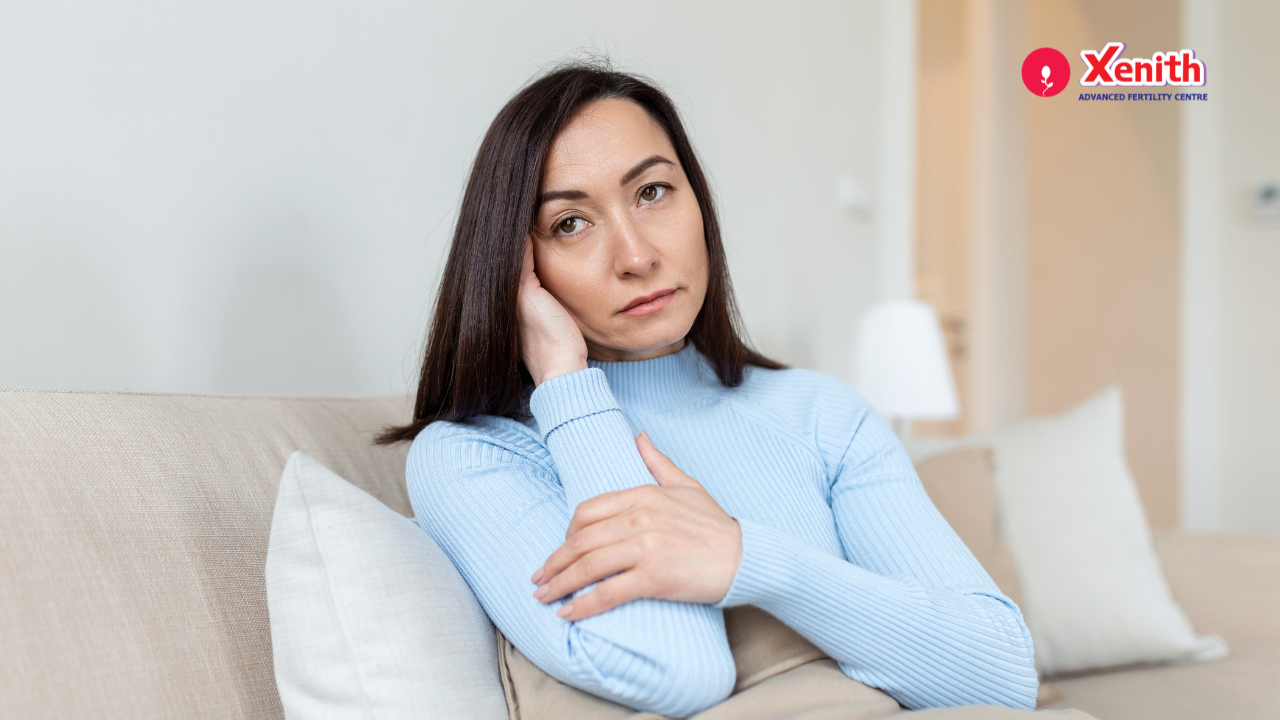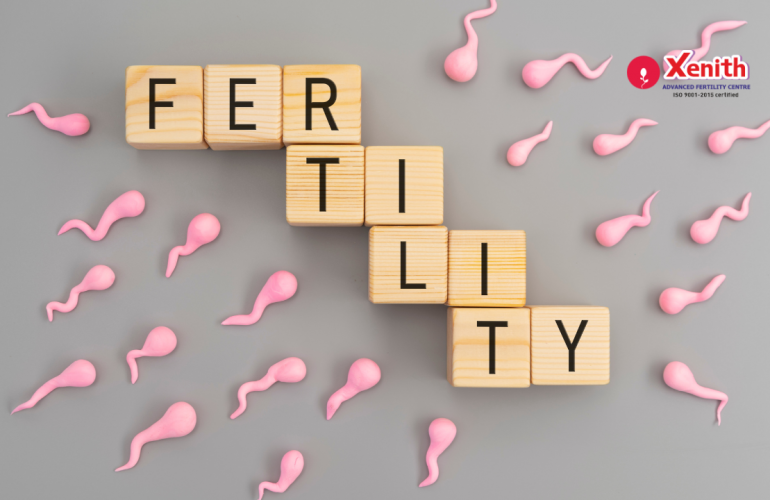Menopause occurs eventually as women age and it marks the end of her menstrual cycles. Even though menopause brings with it the freedom from the monthly periods, it also affects the body in several other ways. Is depression something to be expected with menopause?
What is menopause

Free Thursday Consultation
Book Your AppointmentWomen are born with all their eggs stored in their ovaries and this supply of eggs gets depleted over time. Menopause happens when your ovaries have stopped releasing eggs and it’s been a year since you have had your last menstrual period. Perimenopause is the period of a few years before menopause with symptoms like irregular periods, vaginal dryness causing discomfort during sex, hot flashes which is a brief but sudden sensation of heat throughout your body, chills, night sweats meaning excessive sweating at night, problems with sleeping, mood changes or irritability, weight gain, having less energy, frequent urination, thinning hair and dry skin. The severity of the symptoms varies between different women. During this stage, the production of various hormones like estrogen is also affected. Pregnancy is still possible during this time. The years after menopause are called post menopause and these symptoms usually ease off although there might be some added health risks like osteoporosis, cardiovascular disease, diabetes and dementia due to the decreasing levels of estrogen and other factors. In India, the average age for menopause is around 46 (1) although if you have had a hysterectomy or damage to the ovaries due to chemotherapy, you might go into early or premature menopause.
What is depression
Depression is considered to be a mental health condition which affects a person’s feelings, thoughts, and behaviours. Its symptoms can include feelings of sadness or emptiness, being tired all the time, having no interest in activities that you used to enjoy, trouble remembering or concentrating, changes in appetite and also changes in weight, and having trouble sleeping. Depression can affect how you feel, think, and handle daily activities.
There’s been a lot of debate about whether transitioning into menopause is associated with depression. Many studies show an increased risk of depression during perimenopause.(2, 3). These depressive symptoms also decreased in postmenopause.(5) The studies also found that those who have had a previous episode of depression are at an increased risk for depression although women with no previous episode of depression are also at higher risk of depression during the transition into menopause. However, there’ s no evidence that menopause itself causes depression.
It could also be brought on by various other factors surrounding menopause.
- Physical– symptoms like hot flashes can cause anxiety and disruptions in your sleep and it could affect your mood, thereby leading to depression. Changes in your physical appearance like gaining weight and thinning hair could also affect your perception of yourself.
- Mental– The idea that you can no longer bear kids and the thought that you have lost your youth could take a toll on you mentally. At this age, you might also be dealing with aging parents, career changes and your own kids might be leaving home making you feel vulnerable and alone. Other issues like lack of social support, unemployment, and personal health issues could all add up, making you feel helpless which in turn increases the risk for depression. Problems with memory and decreased cognitive function have also been reported in perimenopausal women.
- Hormonal– Normally, the levels of the reproductive hormones like estrogen, progesterone, luteinizing hormone (LH) and follicle stimulating hormone (FSH) among others, go up and down depending on the time of the monthly period. However during the transition period to menopause, the levels of estrogen and progesterone are more variable. Estrogen levels tend to decrease as you near menopause. All these fluctuations could possibly trigger the risk of depression. (3, 6) However, it was found that a certain subset of women seem to be predisposed to have mood disturbances triggered by hormonal fluctuations. This subset includes women with a history of mood disorders. The risk of depression appears to be higher during perimenopause, when hormone levels are changing, than during postmenopause, when estrogen and progesterone levels are low but stable. So hormonal levels itself are not correlated with depression.
- Genetics- A personal or family history of major depression, postpartum depression, or premenstrual dysphoric disorder seem to be a major risk factor for depression in the perimenopausal period.
Treatment
There are many different treatments available depending on the severity of depression.
- Lifestyle- Smoking can increase the severity and frequency of hot flashes and smokers are at risk of entering menopause earlier. (4) Eat a healthy diet with lots of fruits and vegetables, lean protein and healthy fats, avoid alcohol and caffeine and stay hydrated. Do at least 30 minutes of regular exercise daily. Try relaxation techniques like meditation and yoga and be positive and not self-critical. Get enough sleep and try acupuncture or massage. Enjoy time with family and friends.
- Hormone replacement therapy (HRT)- is an option for relieving severe symptoms and the doctor might prescribe it depending on your personal and family medical history. Doctors usually prescribe the lowest dose and for a short period of time because even though it can relieve some menopausal symptoms, it can also make you more prone to other health conditions like heart disease, stroke and breast cancer. These drugs usually involve estrogen, progesterone, or a combination of the two. There are also a variety of dosage forms, including pills, patches, and creams.
- Antidepressants- could help people who are not good candidates for hormonal therapy and is used for patients going through serious depression. Depression is a recurrent illness in that it can come back out of the blue.
- Psychotherapy- Cognitive behavioural therapy can teach you to be more aware of your thoughts that make you feel bad, and replace them with positive ones. It also helps to talk to close friends and family about what you are going through. Your faith could also help you during this time.
The transition to menopause can affect each woman uniquely in different ways. It might feel very overwhelming at times. If you are dealing with depression or if it’s affecting your daily activities and relationships, talk to your doctor about how to alleviate these symptoms so that you can adjust better to this new phase of life. The professionals at Xenith Advanced Fertility Centre have all the expertise in dealing with such situations and you can feel free to avail upon their advice.



